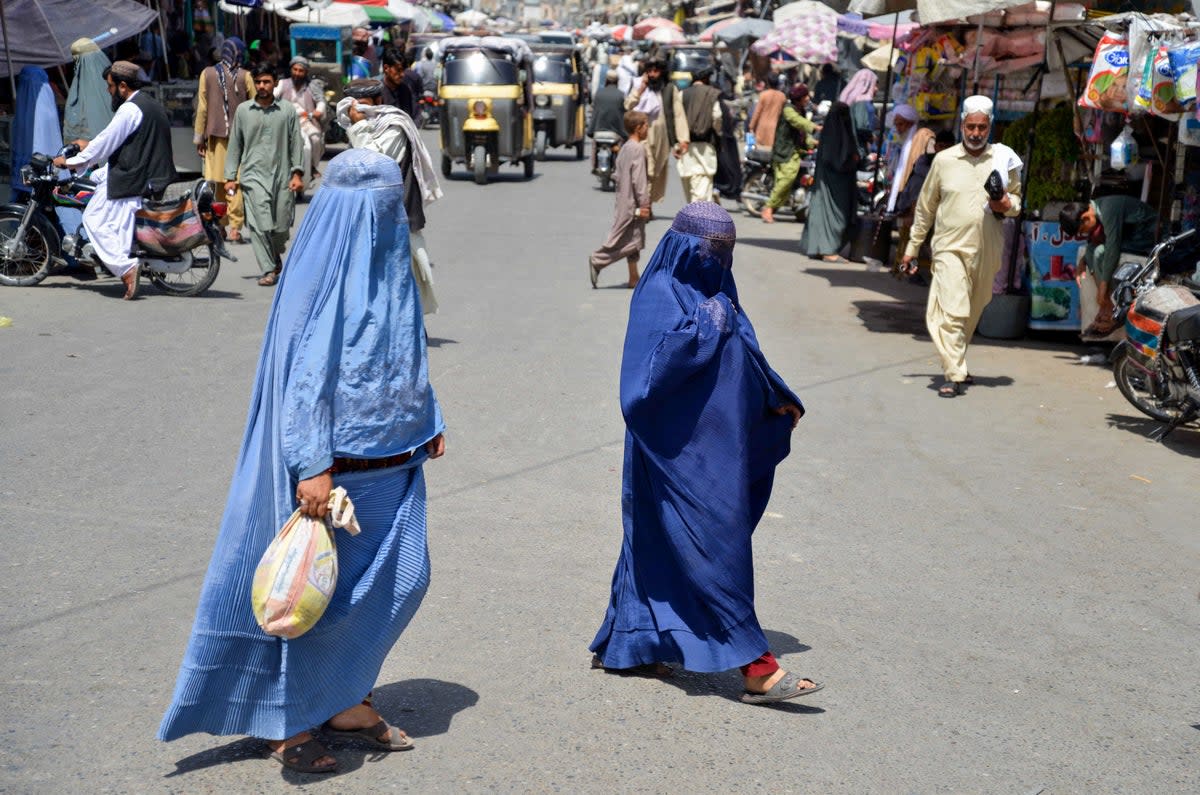Afghan women have comfortable lives under Taliban, supreme leader says

The Taliban has restored the rights of women “as free and dignified human being” in Afghanistan, the caretaker regime’s supreme leader Hibatullah Akhundzada claimed in a message ahead of Eid.
Mr Akhundzada said his de facto administration has taken necessary steps for the betterment of women’s lives in Afghanistan in the message released by the Islamic Emirate’s spokesperson Zabiullah Mujahid on Sunday.
The “negative aspects of the past 20-year occupation” by the US and Nato-led regime related to “women’s hijab and misguidance will end soon”, he said.
The supreme leader claimed that concrete measures have been taken to save women from many traditional oppressions, including forced marriages, “and their Shariah rights have been protected”.
Moreover, “necessary steps have been taken for the betterment of women as half of society in order to provide them with a comfortable and prosperous life according to the Islamic Shariah,” the message from Akhundzada continued.
“The status of women as a free and dignified human being has been restored and all institutions have been obliged to help women in securing marriage, inheritance and other rights,” he added.
The top leader did not mention education for girls and women in Afghanistan in his message. The pre-eid message was broadcast in five languages – Arabic, Dari, English, Pashto and Urdu.
Afghanistan, along with other Islamic nations across the world, will be celebrating the Eid al-Adha holiday later this week.
This message also marked a rare communication by the Islamic scholar and the key leader of the Taliban who does not make public appearances or leaves the Taliban heartland in southern Kandahar province.
Mr Akhundzada has been known to surround himself with other religious scholars and allies who oppose education and working rights for women.
He was also reported to have taken a dominant position in dictating the Taliban domestic policy which banned girls from school after the sixth grade and women from working in office and leading public life, confirming a return to the hardline Islamist regime’s parochial diktats for the female population.
In their nearly two years of rule in Kabul after the exit of the US and Nato forces, the Taliban has successfully removed women from public spaces like parks and gyms, and prohibited them from working with the United Nations and other foreign NGOs aiding millions in the country.
While the measures have triggered a fierce international uproar, increasing the country’s isolation at a time when its economy has collapsed – and worsening a humanitarian crisis, the Taliban has not revoked any of its edicts banning women’s human rights.
In his Eid message, Akhundzada asked other countries to stop interfering in Afghanistan’s internal affairs.
The Taliban government wants good political and economic relations with the world, especially with Islamic countries, and has fulfilled its responsibility in this regard, he said.

 Yahoo News
Yahoo News 
